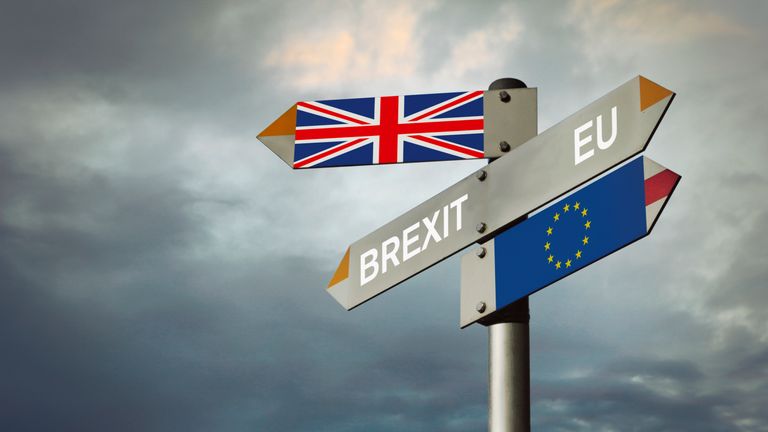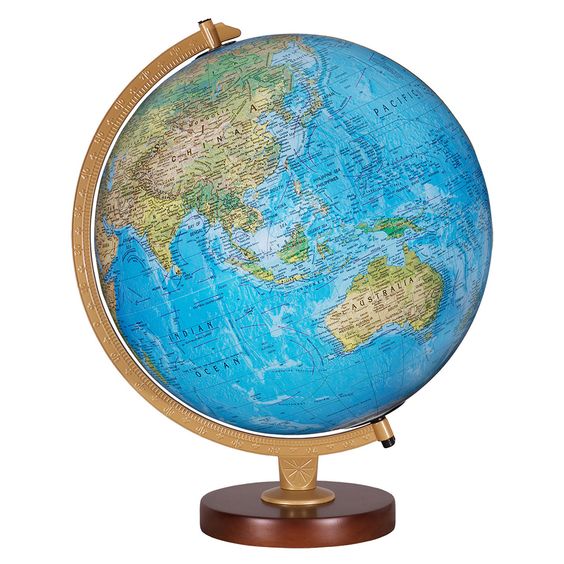
Brexit was embraced (narrowly) first in the 2016 referendum and then again in the 2017 general election.
By Tom Arms
Britain’s political classes have finally recognized the elephant in the room. It is now safe again to utter the B-word.
Brexit was embraced (narrowly) first in the 2016 referendum and then again in the 2017 general election.
Political leaders decided that the issue was decided and to press for a return to the EU would damage electoral chances.
The Labor Party decided to work on the basis of trying to achieve the best of a bad job. The Liberal Democrats, who had led the charge against Brexit, remain committed to EU membership as a “long-term aim” but have shelved it for the short and medium term.
But then they had not foreseen the logical consequence of Brexit—the disastrous mini-premiership of Liz Truss.
They should have. Truss clearly stated her plans in her campaign for the Conservative Party leadership. And before that it was outlined in detail in the 2012 book “Britannia Unchained” written by Truss and Kwasi Kwarteng along with Chris Skidmore, Pritti Patel and Dominic Raab—all ministers in Boris Johnson’s “Get Brexit Done” government.
Truss has repeatedly stated that Britain is a “bloated state with high taxes and excessive regulation” and that the country’s workers are “among the worst idlers in the world” Her solution—and that of the libertarian right-wing of the Conservative Party—was cut taxes, throw out regulations, reduce public spending, and establish tax-free enterprise zones to attract foreign companies. Controlling immigration was not a core policy. It was a useful sidecar bandwagon which could be used to attract voters.
None of the above could be done as members of the European Union. Brussels is a maze of regulations designed to protect workers’ rights, the environment, consumer rights, freedom of movement and competition between member states and their companies.
The only way for the libertarian Tories to achieve their aims was by “taking back control” from Brussels.
Boris Johnson may have well gone the Truss route back in early 2020 but then “events” (as the late Harold MacMillan would have said) interfered. First the pandemic and then the war in Ukraine intervened. Spending priorities and government policy had to be shifted to deal with these immediate and pressing problems. And both these issues required huge expenditure. Where was the money to pay for them?
It was no longer coming in the form of Brussels handouts. Neither could it come from foreign investors because Britain no longer offered them access to the wider European market. Increased taxes were anathema to a Conservative government. So the Johnson government borrowed.
In 2016 the government debt was $1.98 trillion and 84.5 percent of the country’s GDP. In September 2022 it was $2.4 trillion which represented 100.5 percent of the GDP.
By the time Boris Johnson was thrown out of Downing Street in July 2022, Britain was in a financial mess. Interest on government borrowing was rising fast, energy prices were going through the roof and ten percent inflation was igniting a series of trade union disputes.
It was not the right time to launch the Brexiteers libertarian program. But this did not appear to register with them. Truss announced that she planned “to reap the benefits of Brexit” Johnson publicly backed Truss who in turn appointed her co-right wing author Kwasi Kwarteng as Chancellor of the Exchequer.
Kwarteng quickly sacked Sir Tom Scholar, the top civil servant in the Treasury, because he refused to support his budget plans. The new chancellor also failed to submit his proposals to the Office of Budget Responsibility (OBR) – the government’s de facto auditors because he knew they would reject his budget as an unfunded disaster.
And it was a disaster. The market delivered an historic rejection of the Truss-Kwarteng economic plan. The pound plunged to new lows against the dollar and interest rates soared. Kwasi Kwarteng successfully sabotaged the British economy in one 30-minute speech. Jangled nerves were settled somewhat by the sacking of Kwarteng, a reversal on the budget’s key libertarian points and the calming influence of the new Chancellor Jeremy Hunt.
But within days the Truss government faced another crisis when its whips manhandled Conservative MPs on the floor of the Commons in order to defeat a Labor Party proposal to ban on fracking.
The market also dipped a bit after the June 2016 Brexit vote. In the 2017 and 2019 general elections traders were probably more worried about a left-wing Jeremy Corbyn victory than Brexit. The start of the Truss government was its first opportunity to deliver a verdict on the first real Brexit-driven government. And it did.
 World Review
World Review
- Good news bad news on the Ukraine front. Good news is that Ukrainian military are now making progress. It is also good news that Vladimir Putin has declared martial law in the parts of Ukraine he recently annexed and imposed lesser but still severe restrictions on other parts of Russia. The crackdown is a sure sign of lack of public support. Bad news that the Russians have started bombing Ukrainian power generating and water pumping stations. So far about a third of the country has lost power. It will be a dark, cold winter for Ukrainians who may also lose water supplies. Good news on the economic front. The Ukrainian economy is actually growing. This is mainly due to a stable banking system backed up by $23 billion in Western loans to secure currency reserves. But the loans would have been ineffective if the Ukrainians had not cleaned up their banking system which a few years ago was one of the most corrupt in Europe.
- Good and Bad News also on the EU front. They are having another summit as I write this and at the top of the agenda will be how Europe can weather the energy crisis. The bad news is that the European Council has to discuss this issue because the richer countries are bowing to domestic demands to outbid the poorer EU countries for gas and oil supplies. The good news is that they are at least discussing the problem. Other bad news is that it appears that Iran is involving itself in Ukraine on the Russian side. The drones attacking Ukrainian power stations were made in Iran and there are reports that Tehran is also supplying Russia with trainers and surface to air missiles. The Iranians publicly disapprove of Putin’s invasion of Ukraine, but, more importantly, they hate America.
- President Emmanuel Macron had developed a reputation for being more interested in locating Putin’s golden exit ramp than prosecuting the war. As such he was not Volodomyr Zelensky’s most popular Western leader. That perception is changing. This week France announced that they were sending a quarter of their high-tech Caesar cannon to Ukraine. They also announced training facilities for 2,000 Ukrainian soldiers and the dispatch of French anti-aircraft systems and radar. The French still lag well behind the British and Germans, but they are now committing themselves to increased military backing for Ukraine.
- Giorgia Meloni is finding it more difficult than anticipated to form Italy’s first far-right Italian government since Benito Mussolini. The reason is the bad man of Italian politics—86-year-old former Prime Minister Silvio Berlusconi. Meloni and would-be coalition partner Berlusconi have spent the weeks since the election trading insults, falling out, making up and then falling out again. The main cause appears to be Berlusconi’s legal problems. He is in court again, this time for allegedly bribing witnesses. To help him with his personal difficulty, Berlusconi is insisting that his Forza Italia Party be assigned the Justice Portfolio. Ms. Meloni, not surprisingly, wants someone else. Berlusconi is also causing trouble on the Ukraine front. Ms Meloni has been working overtime to repair relations with NATO allies after her previous pro-Putin statements. Berlusconi is undermining her by saying he wants to revive his friendship with the Russian leader and may back the Russian invasion of Ukraine.
- As Brazil’s Election Day approaches (30 October) and as the polls narrow, the campaign is slipping further and further into the political gutter. Most observers would have expected dirty tricks from incumbent Jair Bolsonaro who has been dubbed the “Tropical Trump”. But no, the filth is coming from his opponent Ignacio Lulu da Silva (aka Lulu). His latest advertisements have accused Bolsonaro of the three no-noes of cannibalism, paedophilia and devil worship. The claims indicate that the Lulu campaign is seriously worried. It is not surprising. Polls last week showed his lead narrowing to just three points. This week, after the claims were made, Lulu went back to seven points ahead of Bolsonaro. So filth appears to work in Brazilian politics. Of course, Lulu’s lead could prove totally inconsequential if Bolsonaro carries through with his threat to declare the vote invalid if he loses.
____________________
 Tom Arms is foreign editor of Liberal Democrat Voice and author of “America Made in Britain.”
Tom Arms is foreign editor of Liberal Democrat Voice and author of “America Made in Britain.”